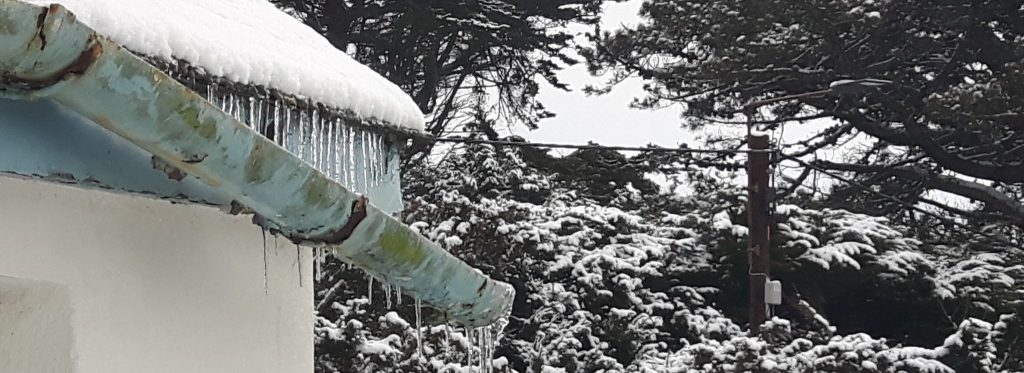
No amount of preparation in advance can prevent unexpected events during storms, but there are things you can do now that will make handling the unexpected easier. High winds and heavy rain can cause considerable damage to your home. Limit the damage (and costs) by taking a few precautionary measures:
Roof
Dangerous projectiles falling from your roof can cause significant damage to nearby buildings, vehicles and people, so make sure your home’s roof is safe.
Tiles and slates – repair any damaged or loose roof tiles or slates promptly. Loose or missing tiles will let in rain, and high winds are likely to cause further damage.
Chimney pots – check for damage to chimney pots and also ensure that any pointing or leadwork is undamaged.
Guttering – check for damage to gutters and fixings. Badly fitting or damaged gutters are susceptible to sliding snow and driving rain, which could get in between the back of the gutter and roofline, leading to water damage to the building fabric.
TV aerial – make sure your TV aerial is properly secured.
Outside your home
Trees and planting – trim trees and bushes to get rid of any unsafe branches and make sure they don’t interfere with your house, by either falling or being flown through windows.
If you have a garage, park your car inside if possible; don’t park beneath trees.
Close gates and doors of outbuildings.
Secure bins and other loose items in a safe place.
Inside the home
Unplug any unused electrical devices to prevent them being damaged in the event of a surge in power.
Close and secure windows and doors, and shutters if you have them.
If you are concerned about flying objects outside, closing your curtains – in the event of a smashed window, they will limit the damage.
If you evacuate your home, make sure you have turned off all utilities: gas, electricity and water.
After the storm
Make sure you are adequately insured for both buildings and contents, and check the amount of cover annually, to make sure it is sufficient. An emergency pack of contact names and numbers, including your home and contents insurer/s, local qualified tradesmen and utility suppliers (including reference numbers) can be useful in an emergency.
Contact your insurance company immediately and don’t commission any work beforehand, unless it’s vital. If you do have anything done without prior consent, make sure you keep records including photographs.
In the event of damage to your home, disputes over liability or matters such as fences or damage caused by fallen trees, ask a Chartered Surveyor for advice on assessing the damage.
SH/LCB

